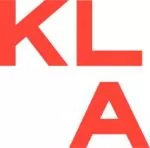The standard defines these enterprises as "any enterprise intended for the storage or movement of packaged, unitized goods or other elements, such as vehicles, steel coils, containers, sacks, crates, bales, crates and boxes, which do not involve the storage of explosive or flammable products." They will be subjected to conventional, three-phase licensing, whenever one or more of the following situations occur:
- Implantation in an area of more than 70 hectares, including built area, road system, slopes and outdoor activities;
- Suppression of native vegetation in the initial stage of regeneration greater than 5 hectares;
- Suppression of native vegetation in an average stage of regeneration greater than 3 hectares;
- Any suppression of native vegetation at an advanced stage of regeneration;
- Soil handling volume exceeding 3,000,000m3.
In addition, the standard indicates that environmental obligations established in the installation license phase must be recorded in the registration of the property as a condition for applying for the operating license. This is because the hypotheses listed above involve anthropogenic interventions in sensitive areas for environmental protection.
Board Decision No. 46/2023 is already in force and does not apply to projects subject to environmental licensing at the municipal level, however, when the above situations are included, the process of obtaining licenses for logistics warehouses must take place before CETESB. A roadmap with more details on the technical criteria of this licensing should be released by the agency in the next 60 days.
We recommend that operations involving the implementation, acquisition or investments in logistics warehouses start to consider the Board Decision No. 46/2023 for the analysis of environmental legal risks of these projects, especially from the point of view of the definition of the competent body for their environmental licensing. In the cases listed above, in which licensing is the competence of CETESB, certificates of exemption from municipal license will not exclude the need for licensing at the state level.
The content of this article is intended to provide a general guide to the subject matter. Specialist advice should be sought about your specific circumstances.


